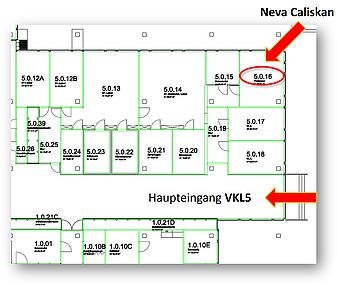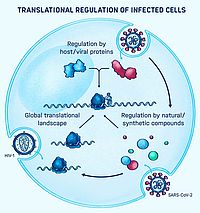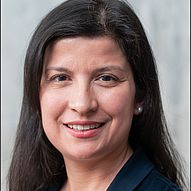Research
The research group lead by Neva Caliskan investigates functions and dynamics of RNA molecules in non-canonical translation events, which can affect the interplay between the host and pathogen during infection. Ultimately, they seek to illuminate therapeutic RNA-protein complexes as novel targets to combat infections.
Viruses and cellular genes encode RNAs that can be read in alternative ways during translation, which is called recoding. However, how exactly recoding is regulated by host encoded factors remains elusive. Here, a detailed understanding of recoding and its regulation can open doors for the development of novel RNA-based therapeutic interventions to combat infections.
Neva Caliskan’s group investigates the functions and dynamics of RNA molecules and their interplay with trans-acting factors involved in recoding events. They work with several viruses known to depend on recoding strategies for replication including corona and retroviruses, and develop methods to investigate RNA complexes and translation in unprecedented detail.
The group employs a highly interdisciplinary toolset including RNA-antisense purification and mass spectrometry to identify RNA-interaction partners, and cellular assays to investigate molecular details. Ensemble and single molecule assays such as optical tweezers are key to study the dynamics of RNA complexes. Ultimately, they seek to understand how RNA-structure elements act in concert with other factors in the cell to modulate the way mRNA messages are read by ribosomes during infections to advance RNA-based therapeutics.
For further information follow the link below:
Recoding Mechanisms in Infection
SHORT CV
publications
teaching
contact
Prof. Dr. Neva Caliskan
Chair of Biochemistry III
Regensburg Center for Biochemistry
University of Regensburg
Universitätsstr. 31
Room: VKL 5.0.16
93053 Regensburg
T: +49-941-943-2472
F: +49-941-943-2474
E: neva.caliskan@ur.de
Office hours:
Wednesday 10-11a.m.







